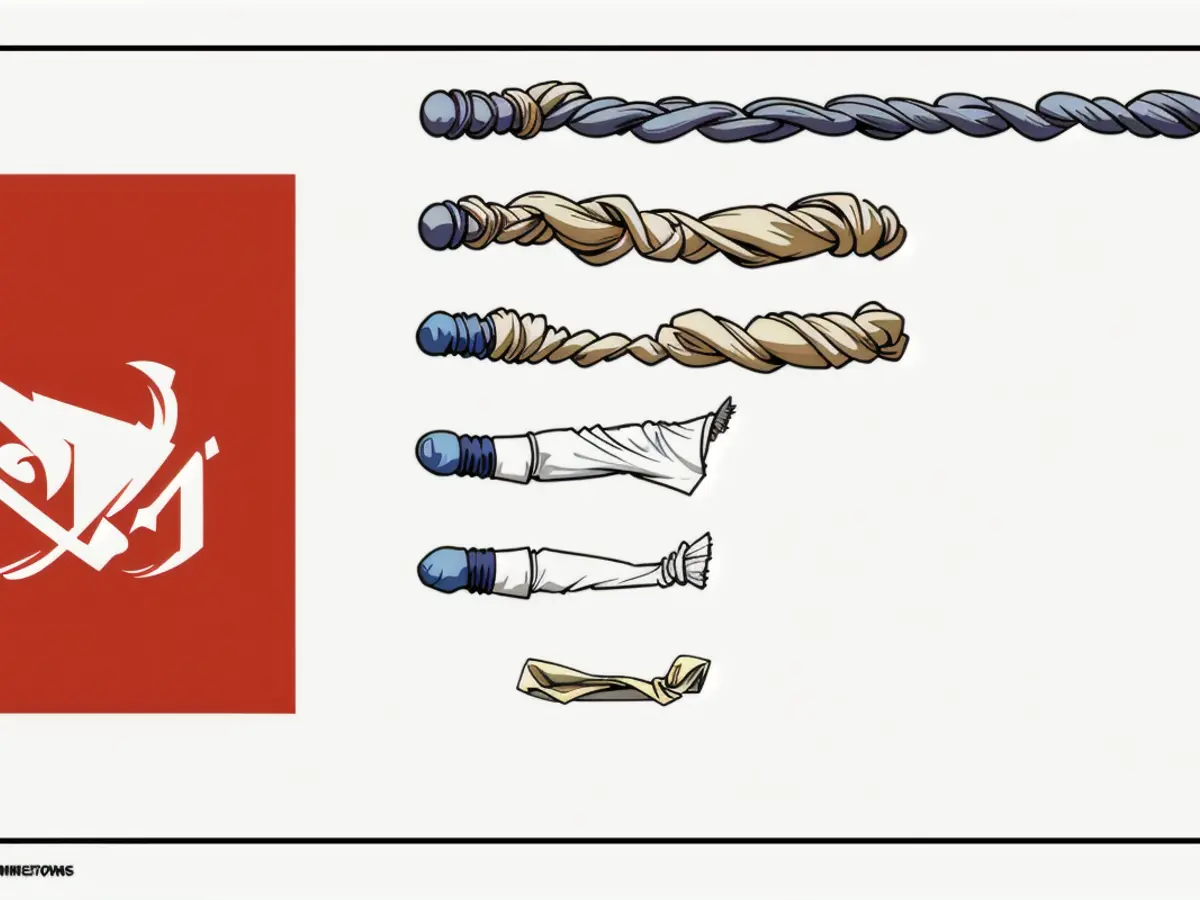Title: Striking Decline in Dow Jones Indices After Unfavorable Employment Report
The Dow plunged by over 550 points, or 1.3%, while the S&P 500 slipped by 1.4% and the tech-heavy Nasdaq index fell by 1.75%. This market decline occurred amidst robust job growth, with the economy adding an astounding 256,000 jobs in December, exceeding predictions by a substantial margin.
This impressive job growth raises the question of when the central bank might need to trim interest rates again. Investors are now anticipating a mere 2.7% probability of a rate cut during the impending policy meeting, as per the CME FedWatch Tool.
Additionally, President-elect Donald Trump's proposed tariff policies, including the potential declaration of a national economic emergency to implement widespread tariffs, has sent shivers down investors' spines, causing bond yields to surge. The yield on the 10-year US treasury spiked to 4.725%, a peak not seen since fall 2023.
The surge in yields indicates mounting concerns about a robust economy, escalating inflation, and fewer anticipated rate cuts in 2025 compared to expectations. According to Chris Zaccarelli, chief investment officer at Northlight Asset Management, "the better-than-expected increase in jobs caused an immediate reaction in both stocks and bonds, with prices dipping (and bond yields climbing as they move inversely with price), as the Federal Reserve has less motivation to cut interest rates this year."
Market sentiment was dominated by extreme fear during the morning hours, as per CNN's Fear and Greed Index.
Despite the robust job growth and potential reduction in interest rates being less likely, some investors are still cautious about the business environment and are actively considering their investing strategies. The uncertainty surrounding President-elect Trump's tariff policies and their potential impact on businesses are causing some to reconsider their investment decisions.








